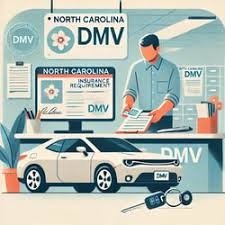When it comes to owning and operating a vehicle, car registration and auto insurance are two essential responsibilities that every car owner must manage. One common question many drivers have is, “Does your car insurance and registration have to be under the same name?” While it might seem like a simple matter, the answer depends on several factors including state laws, the insurance provider’s policies, and the specifics of your situation. This article will provide a detailed look at these topics, explaining everything you need to know about car registration, insurance coverage, and how the names on both documents affect your ability to drive legally.
Car Registration and Insurance: The Basics
Register a Car
To register a car, you must first ensure that the vehicle is insured according to your state’s insurance requirements. Without valid proof of insurance, the registration process cannot be completed. Whether you’re a new car owner or a seasoned driver, registering your car is an essential step to legally drive it. The vehicle registration ties the car to its owner and is needed to establish a record with the local Department of Motor Vehicles (DMV).

Car Insurance Requirements
Most states have minimum car insurance requirements, and failing to meet them can lead to legal issues. For instance, if you plan to buy a car, you must already have a car insurance policy that meets the minimum car insurance coverage for your area. Once you’ve selected the right auto insurance for your needs, proof of insurance will be required to complete the registration.
This is important because, regardless of whether your insurance policy is in your name or someone else’s, your state will still need to verify that the vehicle is properly covered before you can register it.
Different Names on Registration and Insurance
Can Insurance and Registration Be in Different Names?
While it is generally easier for the name on the vehicle registration and the name on the car insurance to match, there are instances when the names do not align. For example, when someone else insures your car, such as a family member or a spouse, or if the vehicle is financed or leased, the name on the insurance might differ from the name on the registration. In such cases, insurance companies may still provide coverage, but you should consult with your licensed insurance agent to ensure everything is in order.
Insurance in Order
For clarity, insurance in order means that your auto insurance coverage is valid and compliant with your state’s car insurance requirements. Even if the name on your car insurance does not exactly match the name on your vehicle’s registration, as long as your coverage meets legal standards, your insurance should still be valid. However, the best course of action is to keep both the registration and insurance policy under the same name to avoid complications.
How to Insure a Car
Non-Owner Car Insurance
If you are driving a car not registered in your name, you may still need non-owner car insurance. This type of insurance allows you to be covered while driving a car that does not belong to you. If you’re driving the car for someone else, or if it’s a rental, a non-owner insurance policy can protect you in the event of an accident, even though you are not the registered owner.
Car Insurance Requirements
To legally drive a car, you must have the required car insurance coverage. This is true regardless of whether the car is registered under your name or in someone else’s name. Some states might have additional car insurance requirements based on the type of vehicle you own or the insurance policy needs. It’s always a good idea to check with your insurance provider or a licensed insurance agent to confirm that you meet the minimum insurance coverage for your state.
Vehicle Registration and Insurance: Why the Names Matter
Title and Registration
The title and registration of your car are essential legal documents that prove ownership and compliance with local vehicle laws. If your car title and vehicle registration are in different names, this could cause confusion if you’re required to provide proof of insurance. Most often, car insurance companies will require the person listed on the registration to be the same as the primary policyholder on the insurance, as this ensures clear ownership of the vehicle.
Matching Names on Vehicle Registration
It’s crucial that the names on a vehicle’s registration match the name on the car insurance policy for smooth transactions. This is especially important when renewing your registration or handling any insurance claims. If a claim is filed, having mismatched names could delay the processing of the claim. For example, if the car title is in your name but the insurance information lists a different individual, the insurance carrier may question whether you are indeed the rightful owner of the car.
Addressing Potential Issues with Mismatched Names
What If You’re the Driver but Not the Owner?
In cases where you are the driver to your car insurance, but not the actual owner of the vehicle, the insurance policy needs to reflect your name if you are driving the car regularly. This is common for people who are listed as additional drivers on someone else’s car insurance but aren’t the registered owner. If you plan to buy a car and make it your own, you’ll need to ensure that the insurance for a car and registration reflect your name.
Can Insurance Be Issued in a Different Name?
Yes, sometimes insurance is issued in the name of someone other than the registered vehicle owner. Insurance companies may allow this in cases of shared ownership or when a vehicle is owned by a business. However, it’s vital that you keep the vehicle insurance details updated and aligned with your current registration and insurance status.
Saving on Car Insurance
Save on Car Insurance
Many drivers look for ways to save on car insurance, especially when managing multiple vehicles or insurance policies. Keeping your registration names and insurance information consistent can help you avoid potential issues and reduce the chances of a claim being denied. Additionally, many insurance companies offer discounts for maintaining multiple vehicles under the same policy or for safe driving.
Car Insurance in Texas
If you live in Texas or plan to drive a car there, you must meet car insurance requirements for that state. Car insurance in Texas is mandatory, and the policy must meet specific coverage limits. Whether you’re registering a car for the first time or renewing it, make sure that you provide valid proof of insurance before completing the process.
Linking Car Registration and Insurance
When you register a vehicle, it’s important to understand that car registration and insurance are linked. To ensure your car is legally on the road, you must insure it with the right insurance coverage. Most states require you to show proof of insurance before you can register the car. Insurance companies will typically ask for the name on the car and proof of insurance to verify that the car is covered. You need to get insurance that matches the name on your insurance policy, and the car title must also reflect the correct registration names.
Importance of Auto Insurance
Having the proper auto insurance policy is essential. In some cases, non-owner insurance might be necessary, especially for people who don’t own a car but need coverage. Insurance for a car ensures you meet insurance requirements and protect yourself against potential liabilities. Keep in mind that liability insurance is often a basic requirement, and it helps you avoid driving without insurance. If you don’t own the vehicle, a non-owner insurance policy might be the right choice for you.
Matching Registration and Insurance Details
If the car is not registered in your name, or if you plan to purchase an insurance policy, be sure to match the vehicle registration with the car insurance details. The name on the car insurance should match the name of the person registering the car. Insurance and registration must be properly aligned to avoid legal complications. Car insurance companies may have different policies for different situations, but they all require proof of insurance to ensure that the insurance policy and registration are consistent and in compliance with state laws.
Final Thoughts: Vehicle Registration and Insurance Under Different Names
In summary, car insurance and vehicle registration may not always need to be under the same name, but it is often the most straightforward approach to avoid complications. Having consistent and accurate insurance information and registration records ensures smooth processing when registering or renewing your vehicle. If you find yourself in a situation where the names don’t match, always contact your insurance provider or a licensed insurance agent to discuss the next steps.
Whether you’re a new car owner or have multiple vehicles to manage, it’s important to stay compliant with state laws, ensure that your auto insurance covers the vehicle you drive, and maintain insurance for your car. Always review your auto insurance coverage and registration and insurance policy to keep things in order.
FAQs of Does Your Car Insurance and Registration Have to Be Under the Same Name:
Can My Car Insurance Be in Someone Else’s Name?
Yes, it’s possible for your car insurance policy to be in someone else’s name, especially if you are not the primary owner of the car. However, it’s best to ensure that the name on the car insurance matches the name on the vehicle registration for simplicity.
What Happens If the Name on My Car Insurance and Registration Don’t Match?
If the names on a vehicle’s registration and car insurance policy don’t match, you could face issues during an insurance claim or when registering your car. Insurance companies might question the validity of the coverage or delay claims processing.
Do I Need Proof of Insurance to Register My Car?
Yes, proof of insurance is required to complete the car registration process. Without it, you will not be able to legally register your car or drive it on public roads.
Can I Change the Name on My Car Insurance or Registration?
Yes, it’s possible to update your insurance or change the name on your vehicle registration by contacting your insurance provider or the DMV. Be sure to have the necessary documents to verify your identity and ownership.

